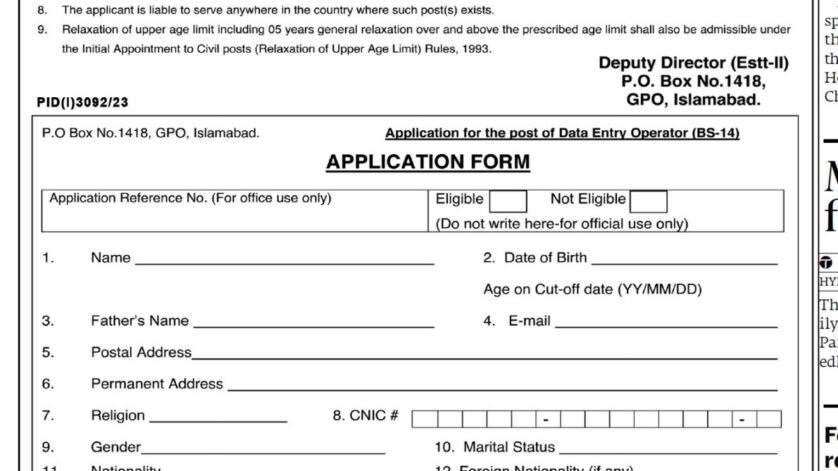4.1 Job Security and Stability:
- 4.1.1 Public Sector Stability: Discuss the inherent stability associated with government jobs.
- 4.1.2 Long-Term Prospects: Explore how government data entry positions provide a sense of job security over the long term.
4.2 Competitive Salary Structures:
- 4.2.1 Government Pay Scales: Explain how government pay scales for data entry positions compare favorably to private sector salaries.
- 4.2.2 Benefits and Allowances: Highlight additional benefits and allowances that come with government employment.
4.3 Employee Benefits and Allowances:
- 4.3.1 Health Benefits: Discuss healthcare benefits provided to government employees.
- 4.3.2 Retirement Plans: Explore pension and retirement plans available in government service.
4.4 Opportunities for Career Growth and Advancement:
- 4.4.1 Career Paths: Outline potential career paths for data entry operators within the government sector.
- 4.4.2 Skill Development Programs: Highlight initiatives that support professional growth.
Section 5: Disadvantages and Challenges
5.1 Rigorous Selection Processes:
- 5.1.1 Competitive Nature: Discuss the competitiveness of government data entry job applications.
- 5.1.2 Lengthy Selection Procedures: Address the potential length of the selection process.
5.2 Workload and Pressure During Peak Times:
- 5.2.1 Seasonal Peaks: Explain how certain government departments may experience increased workload during specific times.
- 5.2.2 Coping Strategies: Suggest strategies for managing workload and pressure.
5.3 Limited Flexibility in Certain Government Roles:
- 5.3.1 Structured Work Hours: Discuss the typically structured work hours in government positions.
- 5.3.2 Remote Work Challenges: Address any limitations regarding remote work options.
5.4 Potential Bureaucratic Challenges:
- 5.4.1 Bureaucratic Processes: Acknowledge potential bureaucratic hurdles data entry operators might encounter.
- 5.4.2 Coping with Bureaucracy: Provide insights on how individuals can navigate bureaucratic challenges effectively.
Section 6: Career Progression and Training Opportunities
6.1 Pathways for Career Advancement:
- 6.1.1 Entry-Level to Senior Positions: Detail the typical progression from entry-level data entry roles to more senior positions.
- 6.1.2 Leadership Roles: Discuss opportunities for data entry operators to move into leadership positions.
6.2 Training Programs and Skill Development Initiatives:
- 6.2.1 Government-Sponsored Training: Highlight any training programs sponsored by the government for skill development.
- 6.2.2 Self-Improvement: Encourage continuous learning and self-improvement for career growth.
6.3 Continuing Education Options for Data Entry Professionals:
- 6.3.1 Further Education Opportunities: Explore options for data entry professionals to pursue higher education.
- 6.3.2 Online Courses: Discuss the feasibility of online courses for ongoing education.
Section 7: Case Studies and Success Stories
7.1 Profiles of Successful Data Entry Operators in Government Positions:
- 7.1.1 Diverse Profiles: Present case studies showcasing individuals from different backgrounds who have excelled in government data entry roles.
- 7.1.2 Career Journeys: Narrate the career journeys of these individuals.
7.2 Personal Experiences and Insights:
- 7.2.1 Challenges Overcome: Share stories of challenges faced by data entry operators and how they overcame them.
- 7.2.2 Rewarding Experiences: Highlight the rewarding aspects of a career in government data entry.
7.3 Lessons Learned and Advice for Aspiring Candidates:
- 7.3.1 Key Takeaways: Summarize lessons learned from the experiences of successful data entry professionals.
- 7.3.2 Advice for Aspiring Candidates: Provide practical advice for individuals aspiring to secure government data entry positions.
Section 8: Technology Trends in Government Data Entry
8.1 Integration of Technology in Data Entry Processes:
- 8.1.1 Automation: Discuss how automation is being integrated into data entry processes within government sectors.
- 8.1.2 Digital Transformation: Explore broader trends related to digital transformation in data management.
8.2 Automation and Its Impact on Job Responsibilities:
- 8.2.1 Evolving Job Roles: Describe how the role of a data entry operator may evolve with increased automation.
- 8.2.2 Upskilling for Automation: Address the importance of upskilling to adapt to technological advancements.
8.3 Skills Required to Adapt to Technological Advancements:
- 8.3.1 Tech-Savviness: Emphasize the need for data entry professionals to stay updated on technological trends.
- 8.3.2 Training Opportunities: Highlight available training opportunities to enhance technological skills.
Conclusion:
9.1 Summarize Key Points:
- 9.1.1 Recap Main Points: Summarize the key points discussed throughout the article.
- 9.1.2 Emphasize Importance: Reiterate the importance of considering government data entry positions as a viable and rewarding career option.
9.2 Encourage Aspiring Data Entry Operators:
- 9.2.1 Final Encouragement: Conclude with a positive message encouraging aspiring data entry operators to explore opportunities in government sectors.
- 9.2.2 Call to Action: If applicable, include a call to action for those interested in pursuing a career in government data entry.
Most for you:

